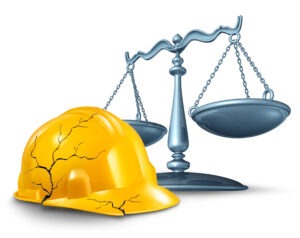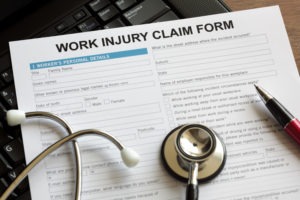
Filing Workers’ Compensation and Personal Injury Claims After a Work-Related Car Accident
Being involved in a car accident is an unpleasant experience, but when it happens while you are on the job, it adds layers of complexity. In these cases, you may find yourself facing not only physical injuries but also financial strains. However, understanding your rights and the available avenues for compensation can help alleviate some of the stress during this challenging time. In this blog post, we will discuss the process of filing both a workers’ compensation claim, and a personal injury claim after a work-related car accident.
- Workers’ Compensation Claim:
When you are injured in a car accident while working, you are generally entitled to file a workers’ compensation claim. Workers’ comp is a form of insurance that provides benefits to employees who suffer work-related injuries or illnesses. Here is what you need to know about filing a workers’ compensation claim:
- Report the Accident: Notify your employer about the accident as soon as possible. Timely reporting is crucial for initiating the workers’ comp process.
- Seek Medical Treatment: It is essential to seek medical attention for your injuries right away. Your employer may have specific healthcare providers you need to see for treatment related to your workers’ comp claim.
- File the Claim: Your employer should provide you with the necessary forms to file a workers’ compensation claim. Be thorough and accurate when completing these forms, documenting all details of the accident and your injuries.
- Benefits: If your claim is approved, you may be entitled to various benefits, including coverage for medical expenses, lost wages and disability benefits.
- Personal Injury Claim:
In addition to filing a workers’ compensation claim, you may also have the option to pursue a personal injury claim against the at-fault party in the car accident. Here is what you should consider when filing a personal injury claim:
- Determining Liability: In a car accident, liability is crucial. If another driver’s negligence caused the accident, you may be able to hold them accountable for your injuries and damages.
- Collecting Evidence: Gathering evidence to support your personal injury claim is essential. This may include photos of the accident scene, witness statements, medical records and any other documentation related to the accident and your injuries.
- Statute of Limitations: Keep in mind that personal injury claims are subject to statutes of limitations, which vary by state. It is crucial to act promptly and file your claim within the applicable time frame to preserve your rights.
- Consulting an Attorney: Since personal injury claims can be complex, it is advisable to seek guidance from a qualified personal injury attorney. An attorney can assess your case, advise you on your legal options and advocate on your behalf to pursue the compensation you deserve.
- Coordination of Benefits:
40+ years of experience from strong, knowledgeable, compassionate attorneys.
Start A Free EvaluationIt is important to understand how workers’ compensation and personal injury claims interact. In some cases, you may be required to reimburse your workers’ comp insurer for any settlement or award you receive from your personal injury claim. However, an experienced attorney can help ensure that you maximize your recovery while complying with any legal requirements regarding coordination of benefits.
Being involved in a car accident while working can have significant repercussions, but you do not have to navigate the aftermath alone.
We know you’re hurting. We can help. Free case evaluations, home and hospital visits.
Contact Us Now For HelpIf you have been involved in an accident while working, contact the personal injury attorneys of Berger and Green for a free consultation to review your case.











